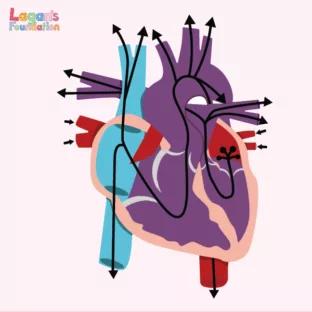Complications of Atrial Septal Defects (ASD) in Children
Learn about the potential complications of an Atrial Septal Defect in children if left untreated.
An Atrial Septal Defect (ASD) is a hole between the upper chambers of the heart. This hole increases the amount of blood that flows to the lungs.
A large, long term ASD can cause damage to the heart and lungs, which can result in further complications as a child grows up.

Does an Atrial Septal Defect affect life expectancy?
When left untreated, those who grow up with an Atrial Septal Defect can expect to have a shortened life expectancy.
However, with the right diagnosis and treatment at a young age, many of those who suffer from ASD go on to live long and healthy lives of up to 80 years and longer.
How do Atrial Septal Defects affect child development?
Many children will not present any symptoms of an Atrial Septal Defect, meaning you won’t be able to see any signs affecting their development.
However, if the ASD is large, your child may:
- Grow slowly
- Have recurring respiratory infections
- Suffer from shortness of breath
- Suffer from arrhythmia

What are the complications of Atrial Septal Defects in children?
A small Atrial Septal Defect may never be a cause for concern, and the hole may actually close during infancy.
However, a large ASD can cause serious complications, including:
- Right-sided heart failure
- Arrhythmia
- Stroke
- Early death
- High blood pressure in the lungs which can cause Eisenmenger syndrome
What happens if an Atrial Septal Defect is left untreated?
If an Atrial Septal Defect is left untreated in childhood, it can lead to poor health problems later on in a child’s life, such as abnormal heart rhythms like arrhythmia and problems in how well the heart pumps blood.
A large ASD can cause extra blood to fill the lungs and overwork the right side of the heart. If this is not treated, the right side eventually grows larger and becomes weak.
Can an Atrial Septal Defect get worse with age?
Yes, if left untreated, an Atrial Septal Defect can get worse with age and the risk of heart related conditions increases.
As children with ASD get older, they may also be at an increased risk of stroke because of the potential of blood clots forming and passing through the hole in the septum and travelling to the brain. High pressure in the lungs, known as pulmonary hypertension, may also develop overtime in older patients with larger holes.

![Understanding Total Anomalous Pulmonary Venous Return [TAPVR]](/wp-content/uploads/2025/04/Understanding-Total-Anomalous-Pulmonary-Venous-Return-FI-312x312-c-default.jpg)


